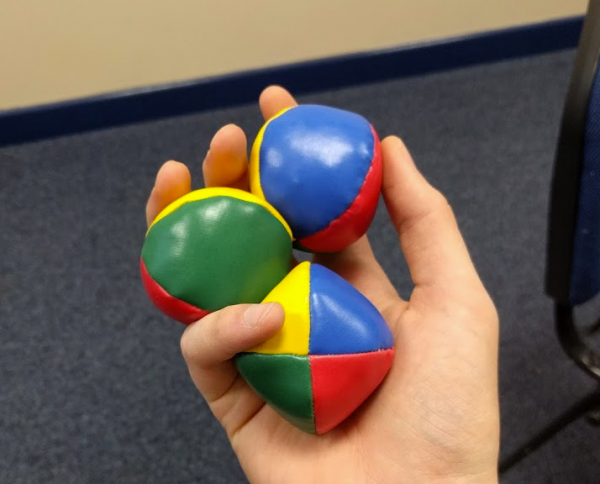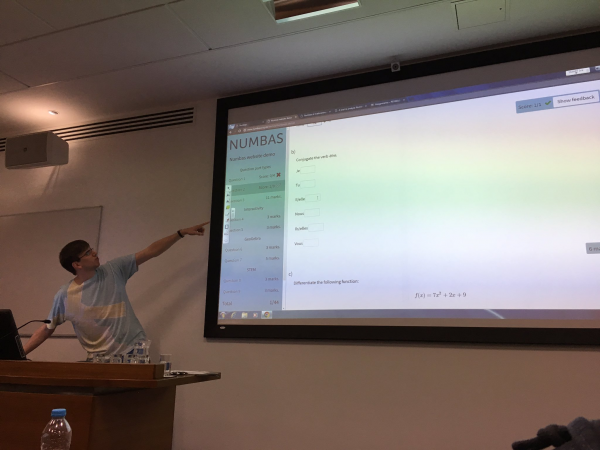My wife’s school recently sent round a form with questions about “a day in the life” of people working in STEM careers, to show to their year 6 children. My job involves the M in STEM, so I agreed to have a go at describing my day.
I quite enjoyed describing about what I do, so I’ve decided to reproduce my answers here. Enjoy!
About You
Your Name: Christian Lawson-Perfect
Your Age: 31
Your Work Place: Newcastle University
Your Job Title: Mathematician / e-learning officer (officially it’s only the second one of those two, but that’s a hopelessly vague title; ‘mathematician’ gets you much closer to imagining what I do all day)
Your route to the job
Secondary school: Dame Allan’s. GCSE Maths, Statistics, French, German, Physics, Chemistry, Biology, IT, History. (I hope they don’t notice I didn’t do GCSE English!)
College: Dame Allan’s (again. Sorry, I went to one of those posh schools.) A-Level Maths, Further Maths, French, Physics.
Apprenticeship: None.
University: Newcastle University. Master’s degree in Mathematics and Statistics.
First Job: Newcastle University. Tutor and e-learning officer.
Top tip
Are there any tips you would give someone who wants a career in your field?
Maths is much more about persistence than natural ability – everybody gets stuck, and it’s much more than just doing sums – in fact, some of us are hopeless at doing actual calculations. Doing puzzles and playing games is the best way to develop your thinking skills.
Good thing/bad thing
Best thing about your job?
I get to solve interesting maths problems, and travel around the world to meet people who use the software I make.
Not-so-good thing about your job?
Like all jobs, there are forms to fill in and meetings to attend. On busy days when I’m interrupted a lot, it makes it hard to get any good maths done.
Please supply up to 5 photos and accompanying text which summarise a typical day in your job
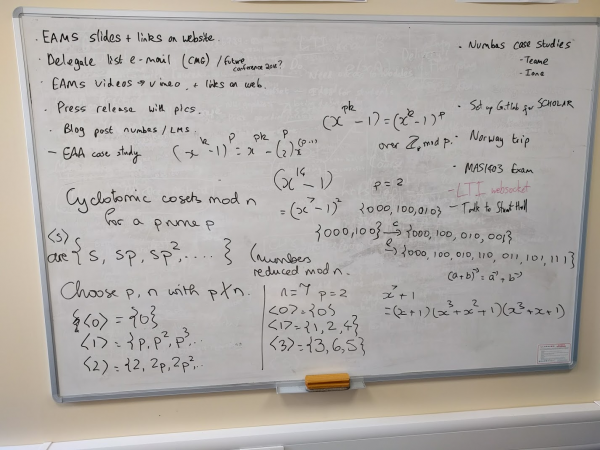
My whiteboard has my to-do list on it, and some working-out for maths problems I’ve been working on.
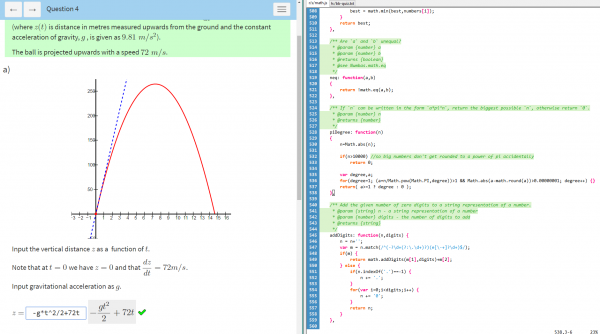
My job involves a lot of programming. I make a system which lets students do their homework online. I have to solve lots of maths problems to make it work.
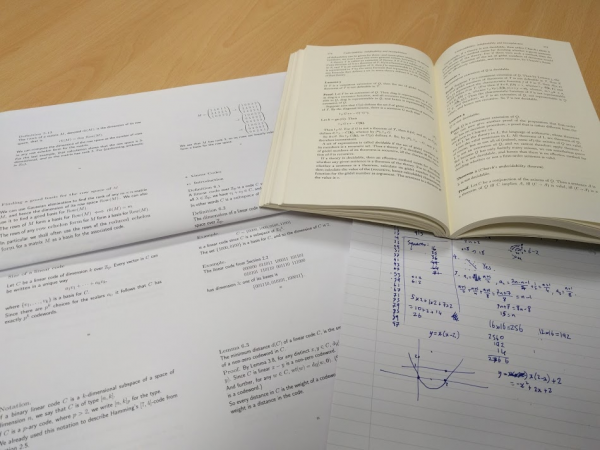
I work with other lecturers to come up with homework questions for their students. I often have to look up theorems in books. I get through a lot of paper with my working-out!
